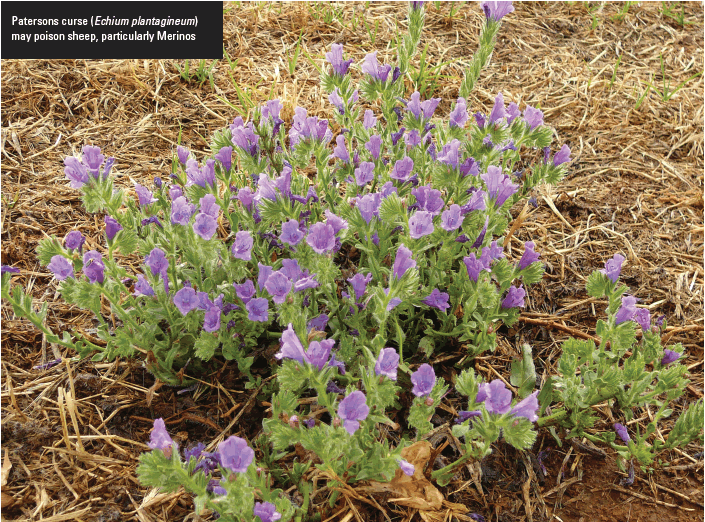 |
 |
Complete a risk assessment of diseases likely to occur in your locality
|
 |
Monitor your flock for disease and health problems
|
 |
Act quickly to prevent production losses and welfare problems from sporadic outbreaks of diseases |
|
 |
Key decisions, critical actions and benchmarks
Recognise, investigate and take early action on poor sheep health or deaths
Recognise common diseases and know how to treat and manage them. See tool 11.17 for a list of some common sheep diseases. Early recognition is crucial for minimising production and economic losses from sporadic disease problems.
Record disease problems, deaths, and where sheep fail to meet production targets. Records include class of stock, area of farm affected, animal treatments, pasture assessment, stock condition score and grazing management.
Set trigger points for action to avoid delays in investigation and remedial treatment. Take action when:
- The tail in a mob increases
- You observe abnormal behaviour (staggering, standing alone, etc)
- Symptoms of disease (lameness, scouring, coughing, etc) appear
- Feedback from abattoirs indicates a disease problem (liver fluke, CLA-cheesy gland)
- Sheep fail to achieve expected production targets.
As a benchmark, investigate any mobs when there is more than one death or diseased sheep within any 2–3 day period.
If an unexplained disease occurs seek professional advice from your local veterinarian or livestock health adviser. If an exotic disease is suspected contact your veterinarian, Department of Agriculture/Primary Industries, or dial the emergency animal disease hotline: 1800 675 888.
Some sheep diseases infect humans
Some common sheep diseases are transmissible to people (zoonoses). These include Q-fever, campylobacteriosis, scabby mouth, yersiniosis, salmonellosis, listeriosis, anthrax and hydatids (via dogs). Conduct a risk assessment for people likely to come in contact with sheep that may have any of these diseases. Tool 11.18 presents the common signs in people.
Toxic plants and noxious weeds
Some plants may be toxic or affect livestock performance. Even desirable pasture species, such as phalaris (phalaris poisoning and staggers), perennial rye grass (perennial rye grass staggers) and annual rye grass (annual rye grass toxicity) can be toxic or have harmful effects.
Be aware of plants that can be toxic to sheep in your area. Consult your veterinarian, agronomist or livestock adviser to help identify dangerous plants and develop a risk management plan in the face of an outbreak.
Signposts  |
Read
The following reference books may be available in libraries or from online sellers:
Livestock diseases in Australia (2006). A. Brightling (CSIRO Publishing: Melbourne).
Diseases of Livestock (1990). T.G. Hungerford, ninth edition. (McGraw-Hill).
Poisonous plants of Australia (1981), S.L. Everist – detailed work on native, naturalised and some garden plants known to be capable of poisoning livestock or humans. Targeted to graziers and farmers (www.angusrobertson.com.au).
Poisonous Plants: A Handbook for Farmers and Graziers (1983). E.J. McBarron (Inkata Press).
Medical and Veterinary Aspects of Plant Poisoning in New South Wales (1976). E.J. McBarron (NSW DPI).
MLA Tips & Tools: Perennial Ryegrass Toxicosis – download the fact sheet here.
Annual Ryegrass Toxicity: Information on the Control and Management. Visit: http://www.agric.wa.gov.au/ and search for Annual Ryegrass Toxicity.
Apps
The Veterinary Handbook for Sheep, Cattle and Goats: Produced by Livecorp, available for iOS and Android. Allows users to search by species, disease or syndrome to instantly access veterinary advice. Can be used offline.
|

|